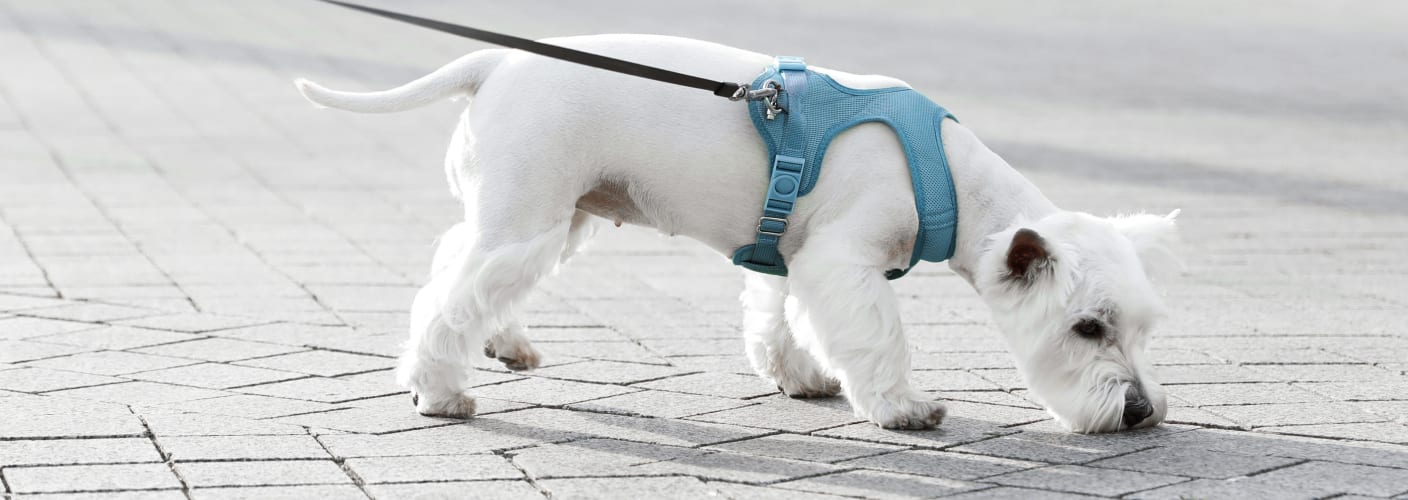
Routine vaccinations are a crucial part of your dog's annual preventive care. These shots help to protect your dog against a variety of serious and potentially life-threatening conditions such as rabies. In this post, our Erin vets share some information about rabies in dogs and how vaccinations can help protect your pup.
What is the rabies virus and how does it affect dogs?
If your dog comes into contact with the saliva of an animal infected with rabies they can also contract the virus. This virus works its way through the nervous system and into your dog's brain Pets, livestock, wildlife and humans can all be affected.
The CDC sees about 5,000 cases of rabies in animals annually, most of which are cases occurring in wild animals. Bats, raccoons, foxes and skunks are the animals most likely to carry this virus.
Rabies is usually not diagnosed until it is too late and your pet will likely die a few days after the initial symptoms appear.
How is rabies transmitted between animals?
If your dog comes into contact with the saliva of an infected animal, either through droplets on surfaces or by being bitten, they may contract the virus. Typically, it will take between 10 and 14 days for your pooch to start showing symptoms.
However, there have been cases of symptoms taking months to years after contact to show up.
What are the typical symptoms of rabies?
Some of the most common symptoms of rabies in dogs include:
- Barking differently
- Excessive drooling
- Uncharacteristic aggression, fearfulness or even affection
- Overreaction to touch, sound or light
- Biting at the site where they were exposed to the virus
- Difficulty swallowing
- Loss of balance when walking
- Partial or complete paralysis
- Falling
- Seizures
Why is rabies difficult to diagnose?
If your pet comes into contact with an infected animal and isn't vaccinated against rabies, you will end up having to make some very difficult choices.
Since animals cannot be tested for rabies, pet parents who find themselves in this position are forced to decide whether to quarantine their pet and wait for symptoms to appear or to euthanize a beloved family member. Quarantined pets are unlikely to survive even if they do not initially show symptoms.
Are there any treatment options for dogs that have been infected with rabies?
Once your dog has become infected with rabies, there is nothing a veterinarian can offer to treat the disease. Quarantine or euthanasia are your only options. This is why prevention is so critical.
What is the rabies vaccine and how does it protect dogs?
Rabies vaccines are highly effective. The vaccinations have a very high success rate and are unlikely to fail. Leaving them the best option for protecting your dog.
Requirements regarding pet vaccinations vary from city to city and state to state, but keeping your pet's rabies vaccines up to date protects both your dog and the people in your household against this deadly neurological disease.
Will my dog need booster shots?
While the vaccine may still not be required by law in certain areas, it is still highly recommended in order to provide optimal protection for your pup.
Our Erin vets recommend the rabies vaccine as a core vaccine to be given to puppies starting between ages 14 to 16 weeks. It is also part of our core kitten and cat vaccinations.
Just like other vaccines, the efficacy of the rabies vaccine will diminish over time. This makes routine booster shots for your dog or puppy very important.
Boosters, which are designed to immunize any animals that failed to respond to the initial dose, should be administered once your dog reaches 12 to 16 months old and every 1 to 3 years depending on the type of vaccine your veterinarian uses.
What are the side effects of the rabies vaccine?
Due to the effect on the immune system, your dog may experience some mild side effects from the rabies vaccine such as:
- Mild loss of appetite
- Mild to moderate energy loss for 24 to 36 hours following vaccination
- Mild fever
- Potential swelling or soreness at the injection site
There is a possibility of minor swelling at the injection site, this will diminish over the few weeks following their vaccinations. In rare cases, a small, circular area of hair loss may develop at the injection site.
Keep in mind that some dogs won't experience any side effects at all from the rabies vaccine. If side effects do occur, they'll typically begin within an hour of vaccination and vanish within one or two days.
There are rare cases of dogs having a severe reaction to the rabies vaccine. These reactions will happen very quickly after the shot has been administered.
Some of the possible serious reactions that may occur are:
- Cough
- Vomiting
- Diarrhea
- Swelling in the face, eyes or muzzle
- Severe swelling or pain at the injection site
- Hives, which appear as firm lumps on the dog's body and may or may not be itchy
- Fainting or collapse
Take your dog to a veterinarian for emergency care immediately if you notice any of the symptoms above.
Is it still possible for my dog to contract rabies when vaccinated?
While there is still a risk of your dog contracting rabies even while vaccinated, the odds are very low. In fact, the rabies vaccine is so effective that dogs who have been vaccinated rarely become infected.
Note: The advice provided in this post is intended for informational purposes and does not constitute medical advice regarding pets. For an accurate diagnosis of your pet's condition, please make an appointment with your vet.

